Clinical Rehabilitation Counseling, MS
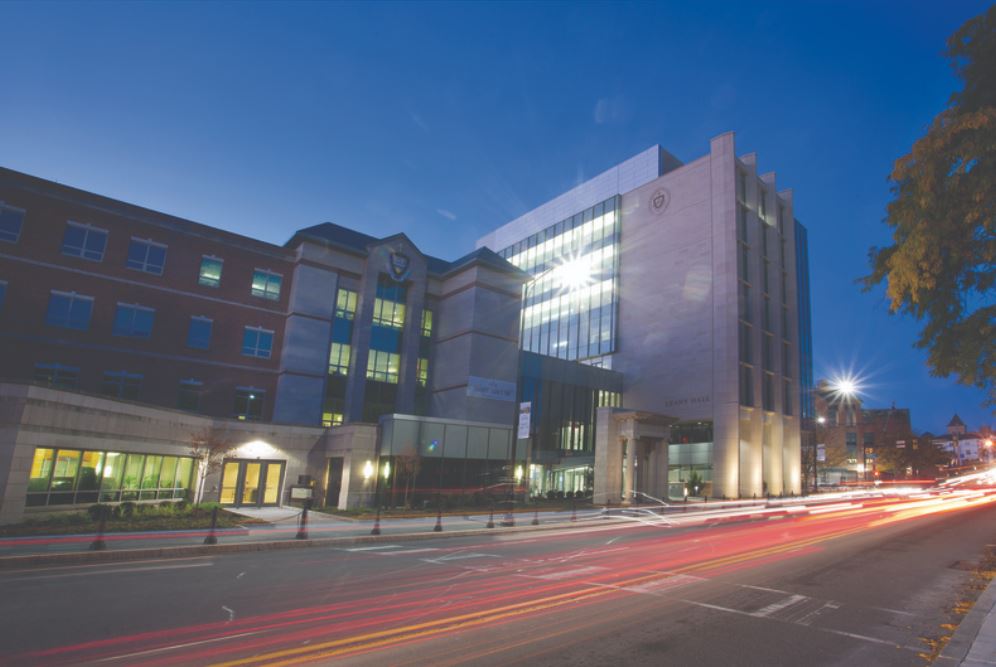 Since 1965, The University of Scranton has been preparing students to work in the wide field of rehabilitation counseling.
Since 1965, The University of Scranton has been preparing students to work in the wide field of rehabilitation counseling.
For over 50 years, we have been working to educate and train students for careers in a variety of counseling settings. Our primary goal is to acquire and apply the specialized knowledge, skills, attitudes and values needed to collaborate in a professional relationship with people who have disabilities to achieve their personal, social, psychological, and vocational goals.
In 2017, the program went through a curricular revision process to keep up with changes in the field and move to a 60 credit program.
Testimonials - Read about our recent graduates
"The rehabilitation counseling program challenged me to grow both professionally and personally, which allowed me to become a more authentic and reflective counselor. The program has given me the tools to feel confident going into the community to support individuals with disabilities throughout the rehabilitation process vocationally, and also holistically." - Mara Wolfe, G'18
Program Specific Admission Requirements
Still Accepting Applications!
Students falling below a minimum undergraduate GPA of 3.00 on a 4.00 scale may be required to submit other evidence of their ability to successfully complete a graduate program, such as grades in other graduate-level courses, a record of progressively higher work responsibilities, or scores from the Miller Analogies Test or Graduate Record Examination.
Applicants are expected to have completed a course in each of the following areas: Introduction to Statistics (Descriptive Statistics or Basic Inferential Statistics), Introduction to Theories of Personality, Counseling or Psychotherapy and Lifespan Development (Developmental Psychology, Adulthood, Adolescence, Childhood, Growth and Development).
Personal interviews with program faculty members prior to acceptance are required. Clinical Rehabilitation Counseling applicants participate in a group interview. All interviews are scheduled by program faculty shortly after the application deadline. Program Directors review applications and pay particular attention to each applicant’s ability to address program specific professional goals and professional identity in the statement of intentions.
For general application requirements, please Visit Our Admissions Webpage.
Curriculum
Beginning in the fall of 2019, the program moved to a 60-credit curriculum leading to the Master of Science degree. Our program curriculum includes: Foundations of Professional Counseling courses (39 credits), Clinical Rehabilitation Counseling courses (18 credits) and one Elective course (3 credits). This includes a three credit practicum (100 hours of supervised counseling experience at our on-campus David W. Hall Counselor Training Center) and six credits of internship (600 hours of supervised field experience within a community placement).
For specific course information, please review the Rehabilitation Counseling Program Manual.
For additional information on the curriculum, visit the Loading... Catalog.
Mission Statement of Rehabilitation Counseling Program
The Clinical Rehabilitation Counseling program prepares students for careers in a variety of counseling settings with the primary goal of acquiring and applying the specialized knowledge, skills, and values that will enable them to effectively assist and support individuals with disabilities throughout the rehabilitation process. The Rehabilitation Program works towards this goal by creating an environment which encourages a commitment to life-long learning, critical thinking, resource development, creative problem solving, the development of a professional network, and appreciation of the skills and abilities of persons with disabilities.
The Clinical Rehabilitation Counseling program prepares rehabilitation counselors and related Rehabilitation Professionals for entry into and/or advancement in counseling-related positions in public and private rehabilitation agencies, organizations, and systems.
The program offers a learning environment in which the student can acquire the academic competencies of the profession and refine them through supervised practical experience. The program also provides a facilitative process through which the student can increase self-understanding, self-confidence and personal effectiveness.
Beyond the Classroom
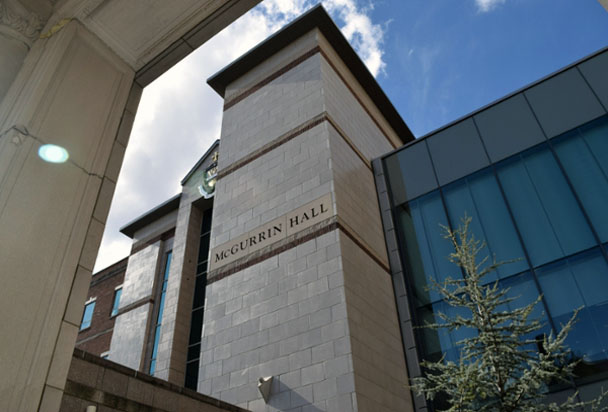
Counselor Training Center
Students work with clients from the University and local community, completing at least 40 hours of direct practicum experience.
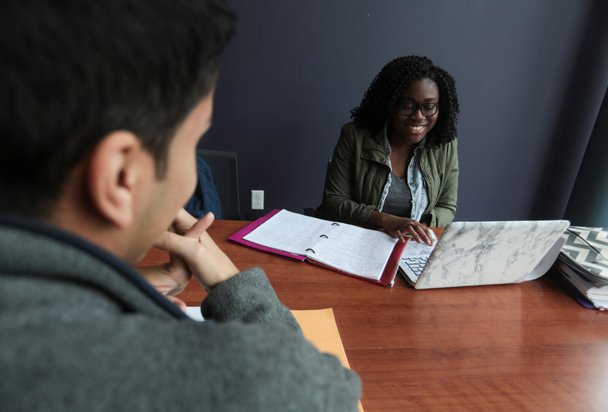
Graduate Assistantships
Graduate Assistants receive a stipend as well as tuition scholarships.

Graduate Honor Societies
Eligible students can join Chi Delta Rho, the local chapter of the International Honor Society of Counseling.
Already have a Master's degree?
We offer a post-master's certificate program designed to meet the educational requirements for a licensed professional counselor
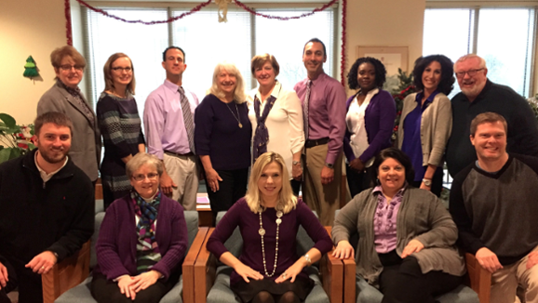
Counseling and Human Services Newsletter
The Journey to Competent Caregiving
The Newsletter will provide you with a glimpse of how faculty work to inspire student growth and the intentional ways that students are mentored to become self reflective practitioners, competent care givers, and community leaders. Likewise, you will read about student perspectives as they navigate through the program and explore pivotal moments in their student counselor development. These stories provide insight into what a Scranton Education is all about.
Graduate Education at Scranton
With over 30 programs The University of Scranton can help you to achieve your goals, personally and professionally. Find out what our students have to say about graduate education at Scranton.
Graduate Outcomes
Job Placement Rate of the Class of 2020
100% of the Rehabilitation Counseling student graduates from 2019-2020 are employed.
Average National Starting Salary for RC Graduates
A national survey by the ACA reported an average national salary of $52,000.
Career Opportunities
Public vocational rehabilitation, community rehab. agencies, university settings, drug & alcohol counseling, behavioral health, corrections, and many more.
Accreditation
The Rehabilitation Counseling program is accredited by the Council for Accreditation of Counseling and Related Educational Programs (CACREP), a specialized accrediting body recognized by the Council for Higher Education Accreditation (CHEA). Hence, a graduate of our program meets the educational requirements for being a licensed professional counselor (LPC) in Pennsylvania. Additionally, graduates are eligible to sit for the national qualifying examination to become a Certified Rehabilitation Counselor (CRC). Students are encouraged to apply to take the examination in the final semester of study. Students who pass the examination are certified upon submitting evidence of successful completion of the degree and internship.
The Rehabilitation Counseling program is accredited through 2022. We are currently in the process of accreditation for the Clinical Rehabilitation Counseling program.
Combined/Accelerated Degree Option
Undergraduate Human Services majors with outstanding academic records may be eligible for early admission to the Clinical Rehabilitation Counseling graduate program through the Accelerated Baccalaureate/Master's Degree Program. (Other relevant majors may also be considered for admission.)
Interested students must commit to this program no later than the end of their junior year of academic study, adhere to the time frame for application as outlined in the Graduate Course Catalog, and meet specific admissions criteria. Visit the Accelerated BS/MS Degree website for more information.
Meet the Program Director
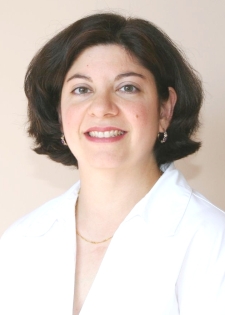
Rebecca Spirito Dalgin, Ph.D., C.R.C., C.P.R.P.
Clinical Rehabilitation Counseling Graduate Program Director
Ph.D., Syracuse University M.S., Syracuse University B.A., Quinnipiac University
(570) 941- 7819rebecca.dalgin@scranton.edu





